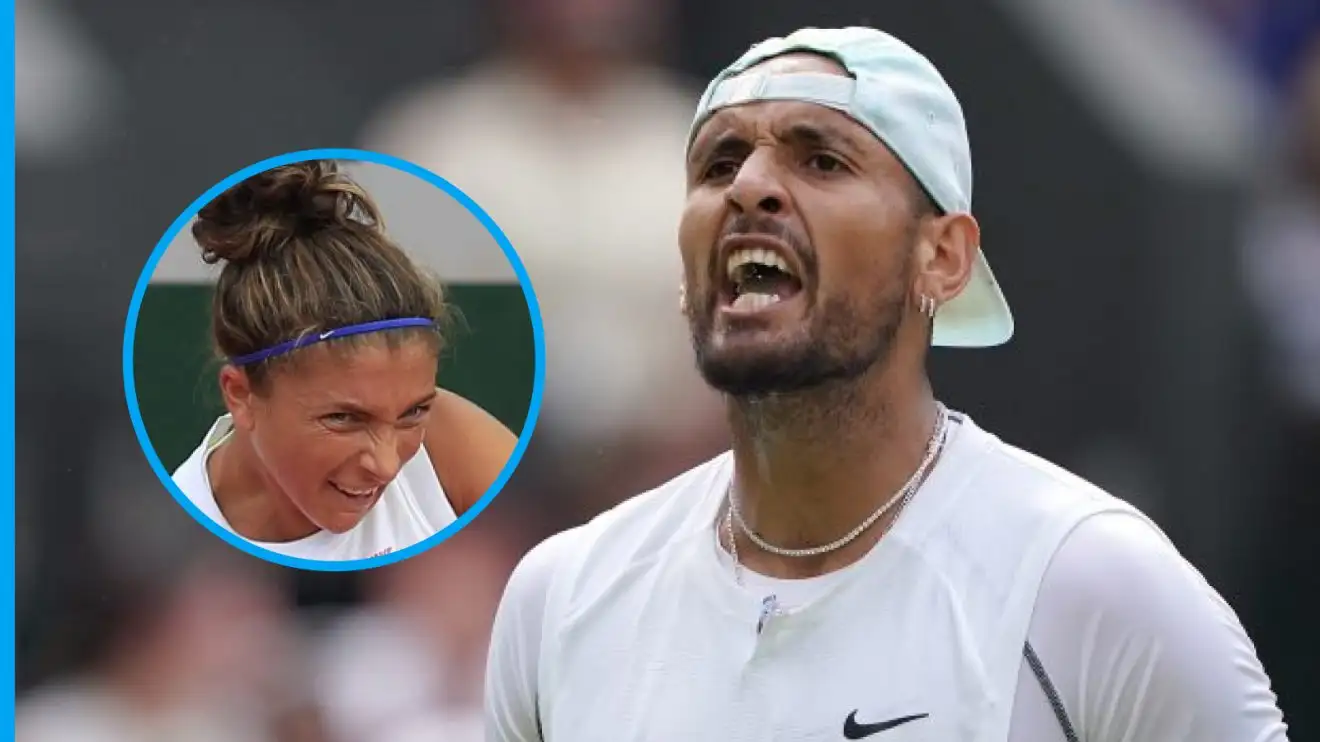
Nick Kyrgios, a tennis player known for his exceptional skills and outspoken nature, has sparked controversy with his recent remarks about World No. 1 Jannik Sinner. Kyrgios criticized the Italian star following his involvement in a doping controversy, reigniting discussions about sportsmanship and integrity in tennis.
Earlier this year, Jannik Sinner tested positive for a banned substance, Clostebol, during the Indian Wells Open. The International Tennis Integrity Agency investigated and concluded that the substance entered Sinner’s system inadvertently through a spray used by his physiotherapist. As a result, Sinner forfeited his ranking points and prize money from the tournament but faced no suspension, allowing him to continue competing. This decision divided opinion among players, fans, and analysts alike.
Kyrgios was among the loudest critics, voicing his dissatisfaction with the perceived leniency in Sinner’s punishment. He argued that any player who tests positive for a banned substance should face a mandatory suspension, regardless of intent or circumstances. Kyrgios expressed his views publicly, declaring that Sinner should have received a two-year ban, as the rules should apply uniformly to all players.
The Australian also took aim at Sinner in the context of a potential match at the Australian Open. He stated that if they were to face each other, he would use the crowd to unsettle his opponent and would prioritize winning over maintaining sportsmanship. Such comments have fueled speculation about a fiery showdown between the two players should they meet in Melbourne.
Kyrgios’s remarks have drawn significant backlash from the tennis community. Former Wimbledon champion Marion Bartoli expressed frustration, stating that Kyrgios’s provocations had gone too far. Bartoli suggested that Kyrgios’s repeated controversial statements detract from the sport and have become tiresome. Similarly, Nicolas Mahut, a former World No. 1 in doubles, criticized Kyrgios for showing disrespect toward Sinner. He highlighted Sinner’s professionalism and accomplishments, suggesting Kyrgios’s comments were unnecessary and detrimental to the sport.
In response, Kyrgios dismissed Mahut’s criticisms, downplaying the Frenchman’s singles career achievements. He argued that Mahut’s opinions held little weight compared to his own career accomplishments, a retort that only further polarized opinions.
The broader tennis community remains divided. Some see Kyrgios’s remarks as bringing attention to critical issues, such as the enforcement of anti-doping regulations. They argue that the sport needs outspoken figures willing to challenge the status quo. Others believe his comments are damaging to tennis’s reputation, undermining respect and camaraderie among players.
Meanwhile, Sinner has largely refrained from engaging in the controversy, choosing instead to focus on his performances. His composed demeanor and consistent results have solidified his position at the top of the rankings, making him a formidable presence on the court. Sinner’s ability to remain unshaken by the criticism reflects his maturity and commitment to his game.
This controversy has also reignited conversations about the consistency and fairness of anti-doping regulations in tennis. While the ITIA cleared Sinner of intentional wrongdoing, the case underscores the complexities involved in handling such situations. Balancing the need for strict anti-doping measures with the realities of inadvertent contamination remains a challenging task for governing bodies.
As the Australian Open approaches, anticipation builds around the possibility of a match between Kyrgios and Sinner. Such a clash would undoubtedly draw global attention, not only for the quality of tennis but also for the underlying tensions between the two players. Fans and analysts alike are eager to see how this dynamic will play out on the court.
Kyrgios’s criticisms of Sinner highlight the challenges of maintaining sportsmanship in a competitive environment. While his outspoken nature has earned him both admirers and detractors, it also raises important questions about the balance between fair play, individual expression, and the enforcement of rules. Whether this incident will lead to meaningful discussions about anti-doping policies or simply remain another chapter in Kyrgios’s controversial career remains to be seen.
The unfolding drama ensures that tennis continues to captivate audiences not just with its on-court action but also with the compelling narratives surrounding its players. As the season progresses, all eyes will be on Kyrgios, Sinner, and the broader implications of their actions and words for the sport.
Leave a Reply